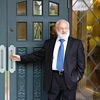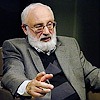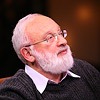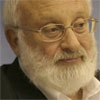The Zohar: A Guide To Spiritual Roots
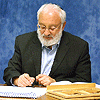 A question I received: The authors of The Zohar wrote the book for our generation. I just started my spiritual path. Why do they so scrupulously describe such high degrees? What meaning can I derive from these commentaries for myself?
A question I received: The authors of The Zohar wrote the book for our generation. I just started my spiritual path. Why do they so scrupulously describe such high degrees? What meaning can I derive from these commentaries for myself?
My Answer: The degrees and the states described in The Zohar are in fact the states of the World of Atzilut. These states bear a relationship to every degree, even the lowest, when a person is merely reading this book without understanding any of it.
It is not important exactly what we read about in The Zohar. A person who opens this book for the first time can read about the most remote systems of the spiritual world. Most importantly, a person’s desire connects him with the Upper Root. From there, he needs to attract the Light upon himself and let this Light elevate him to its Source.
That’s why Baal HaSulam didn’t confine himself to only one book on Kabbalah that one could read and refer to over and over again. Rather, he wrote two thousand pages of Talmud Eser Sefirot to describe the Upper Roots and convey all that’s necessary for our ascent.
However, it doesn’t mean that a person needs to read all the books. By being connected with the text, he awakens the influence of his Upper Roots upon him. Hence, it’s worth reading any text regardless of whether we understand it or not.
In the course of preparing The Zohar for All for publication, we present the whole Zohar except for the parts that describe the research and comparison of sources. We do so because this can be of interest only to researchers, but not to those who strive to attain similarity to the Creator.
Our primary concern is to help people “enter” spirituality, to reveal the Upper Light, and to establish contact with the Creator. This is the reason we prepare The Zohar in a slightly simplified version, but nonetheless, a version certainly sufficient to allow one to enter spirituality.
From the 1st part of the Daily Kabbalah Lesson 4/21/10, The Zohar
Related Material:
Laitman.com Post: The Zohar Is A Source Of Light From Infinity
Laitman.com Post: It Takes Preparation To Tune Into The Book Of Zohar
Laitman.com Post: Searching For Hidden Connections Within The Book Of Zohar



